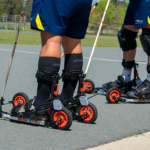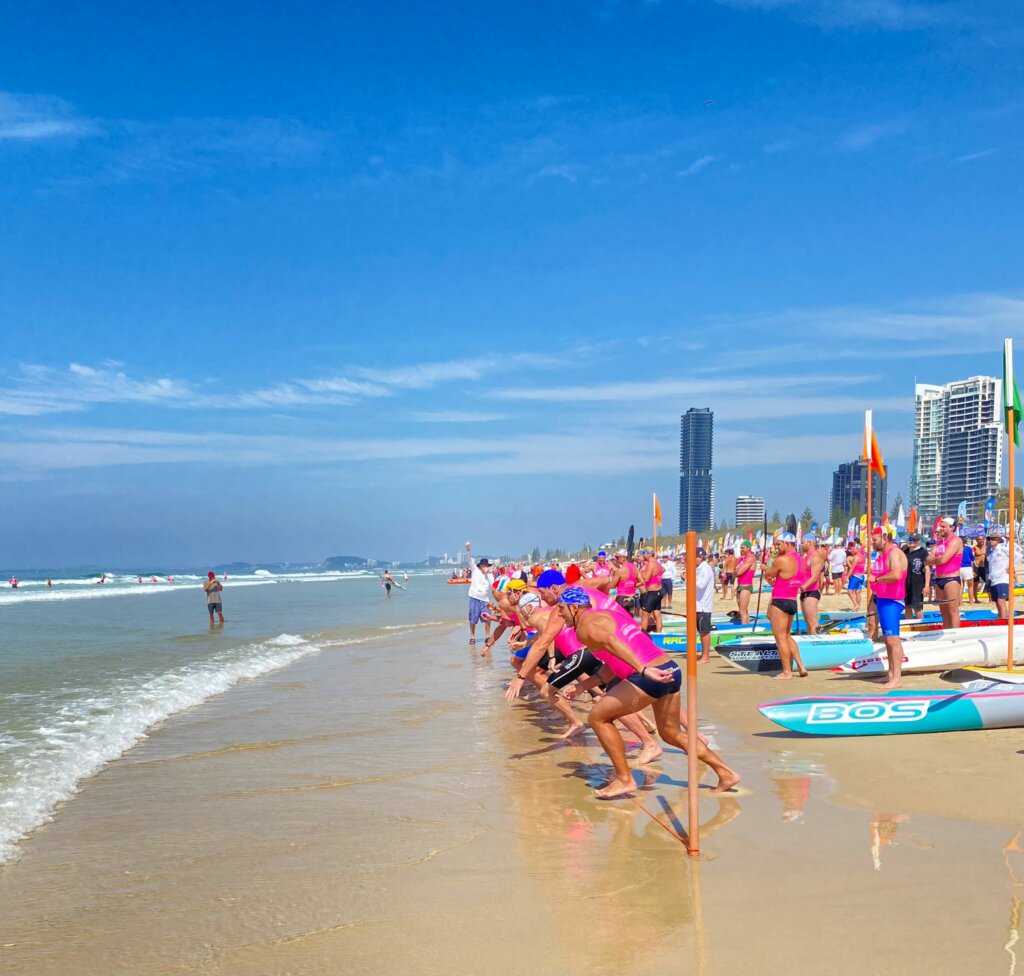
Aussie veterans make waves at the World Lifesaving Championships
Competing in the Masters category against teams from across the globe, Invictus Australia brought together a squad of 22 veterans for a week of competition on the Gold Coast for the Lifesaving World Championships. Those in the team used sport as an outlet to provide a sense of competition and inspire camaraderie, in turn improving their social, physical and mental wellbeing.
What set Team Invictus Australia apart is not just their competitive ability, but also their commitment to inclusivity. The team’s approach ensures that all members, including their families, can engage in the sport of surf lifesaving. This inclusive environment strengthens the bonds within the veteran community, making the competition experience more enriching and supportive for everyone involved.
A TEAM UNITED BY PURPOSE
In the lead-up to this year’s championships, the team spent time identifying their personal goals and what they hoped to gain from the competition as a team. For many of the competitors, it was the opportunity to support others and build a strong team bond that inspired and motivated their performances. As competitor Erin Brigden observed, “What I’ve found with most veterans is that everyone is always rooting for each other, they genuinely want to see others succeed and find their stride after going through adversity. Sport is an easy way to do that.”
In true Invictus spirit, the goal was not solely focused on medals or performance, but rather on creating and fostering an inclusive, supportive community for veterans and their families within the sport of Surf Lifesaving. Even before stepping onto the beach or into the water, the team had already made significant strides toward achieving this goal by ensuring that members from across the country felt welcomed and supported, regardless of their Surf Lifesaving background or personal circumstances.
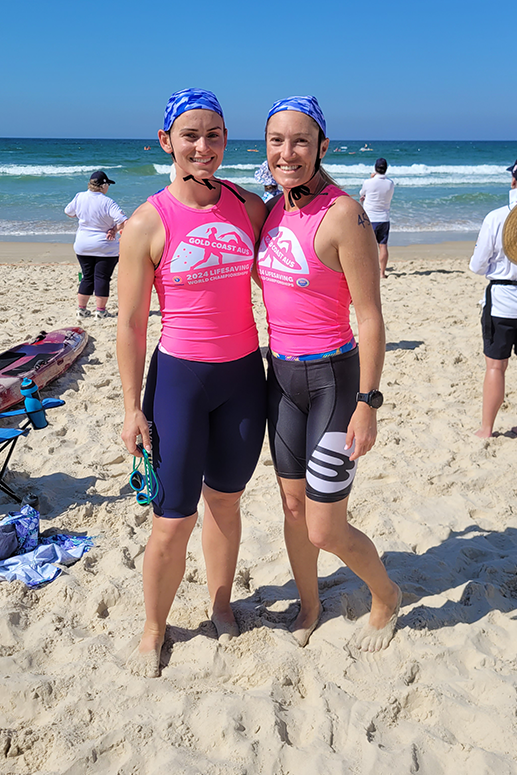
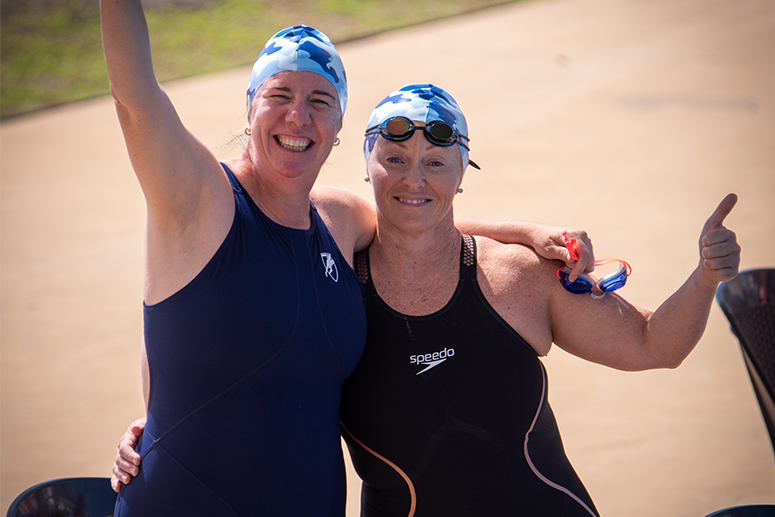
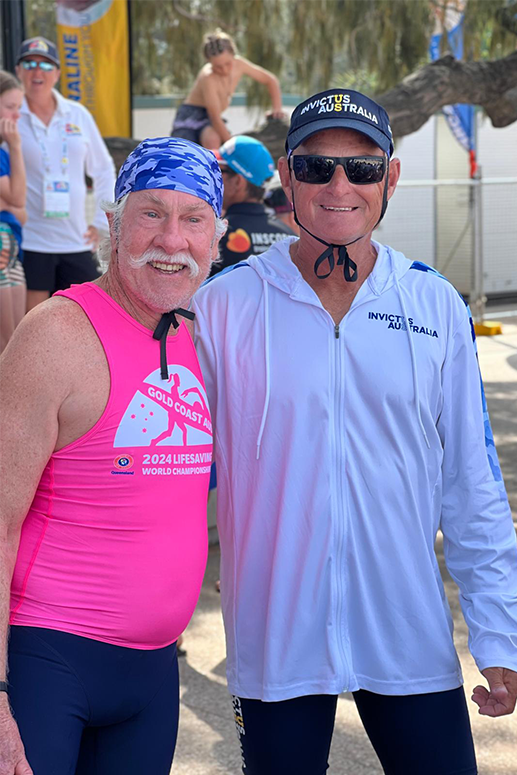
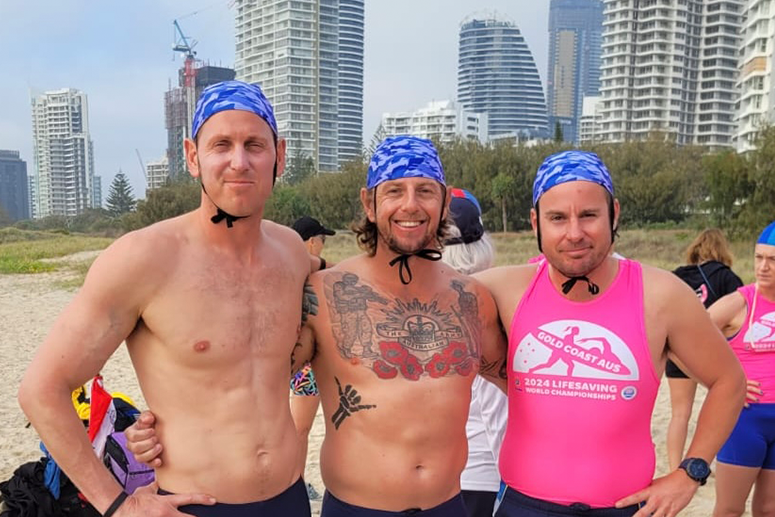
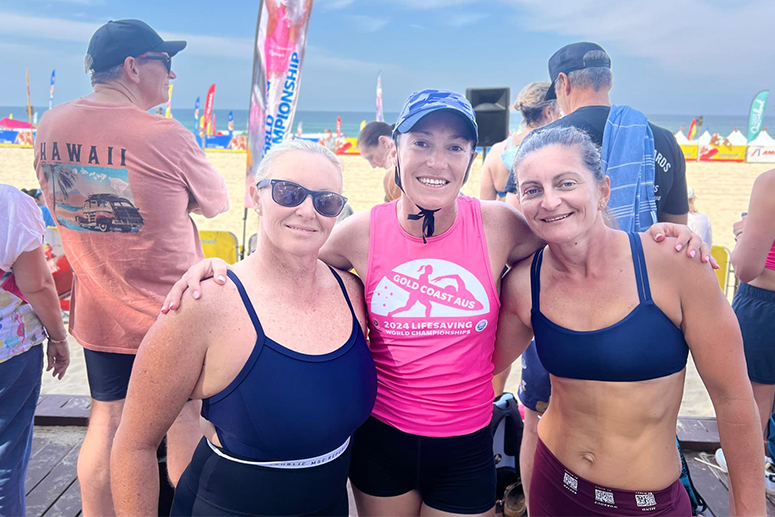
DISPLAY OF GRIT AND DETERMINATION
Competing in the masters category, the team took to the pool to kick off their campaign, delivering inspiring performances, especially across the team events, where this was their first time competing together, in contrast with other teams who trained together in the lead up. After the pool, it was time for the team to head to Kurrawa beach, for three days of board races, relays and sand events.

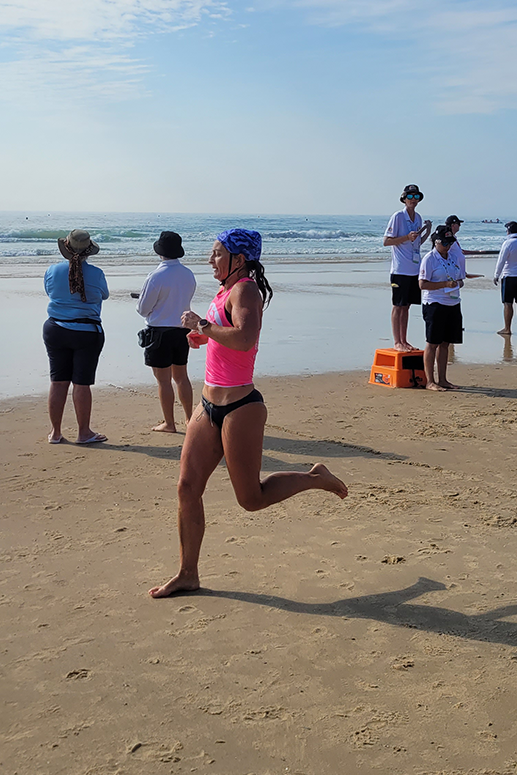
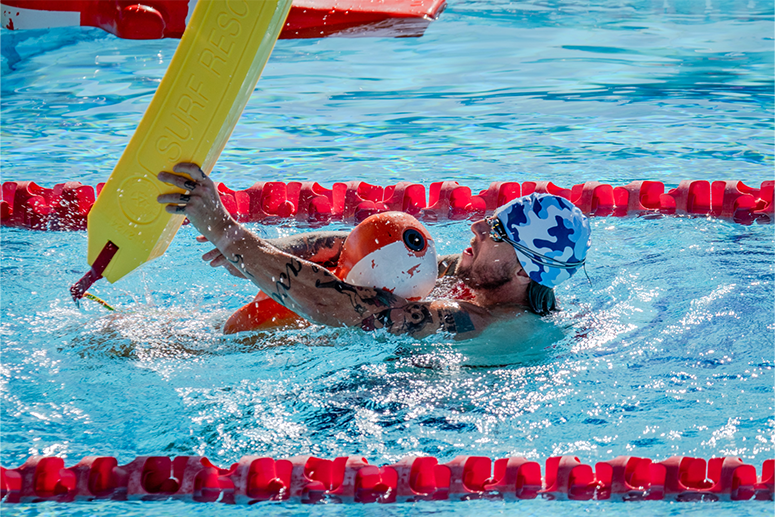
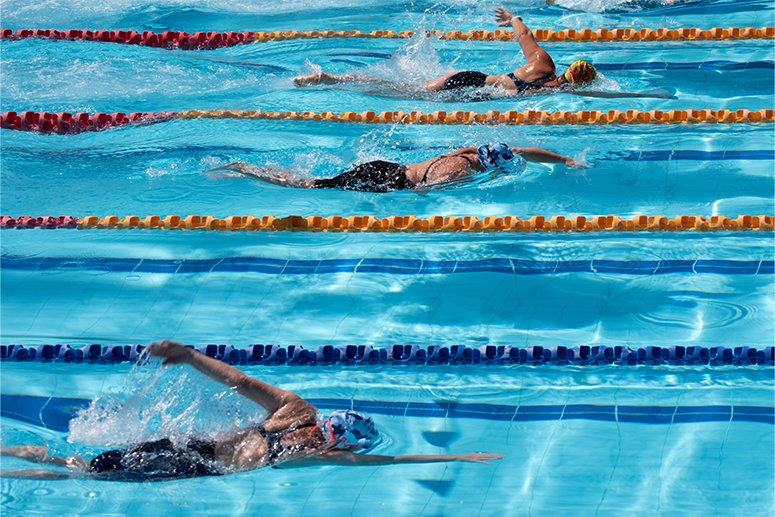
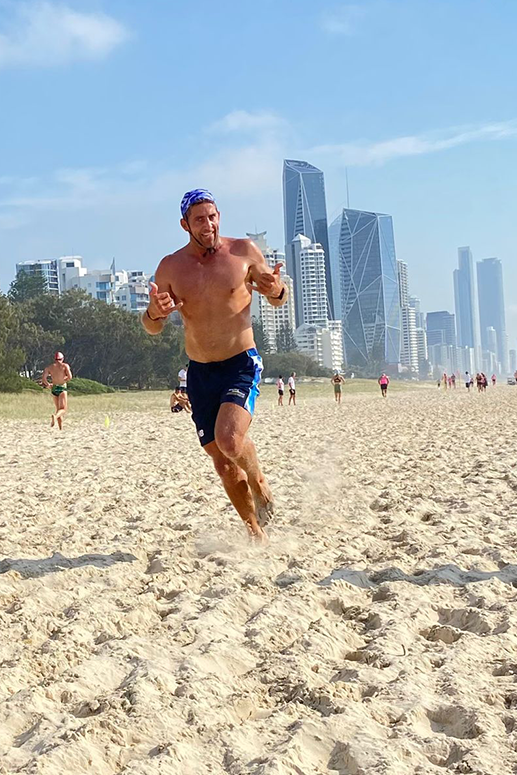
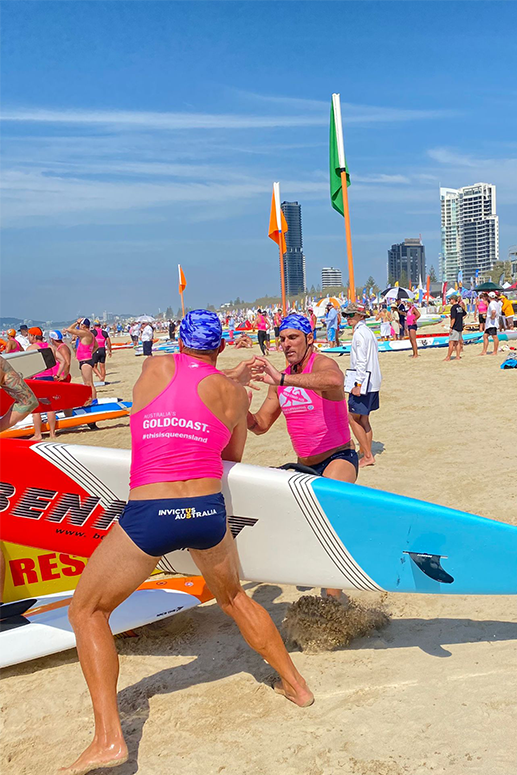
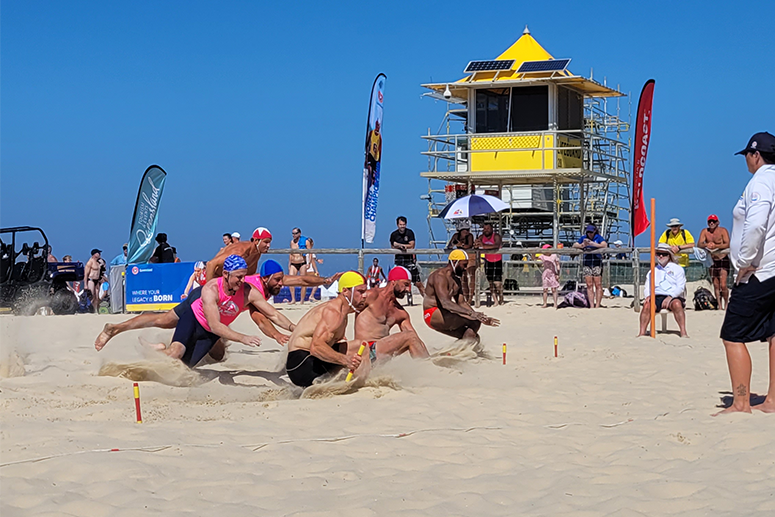
While the team’s goals were not focused on medals, all competitors put on stellar performances, and the team got on the podium in several events. Their final medal count stood at 41, a reflection of their dedication and willingness to show up and compete.
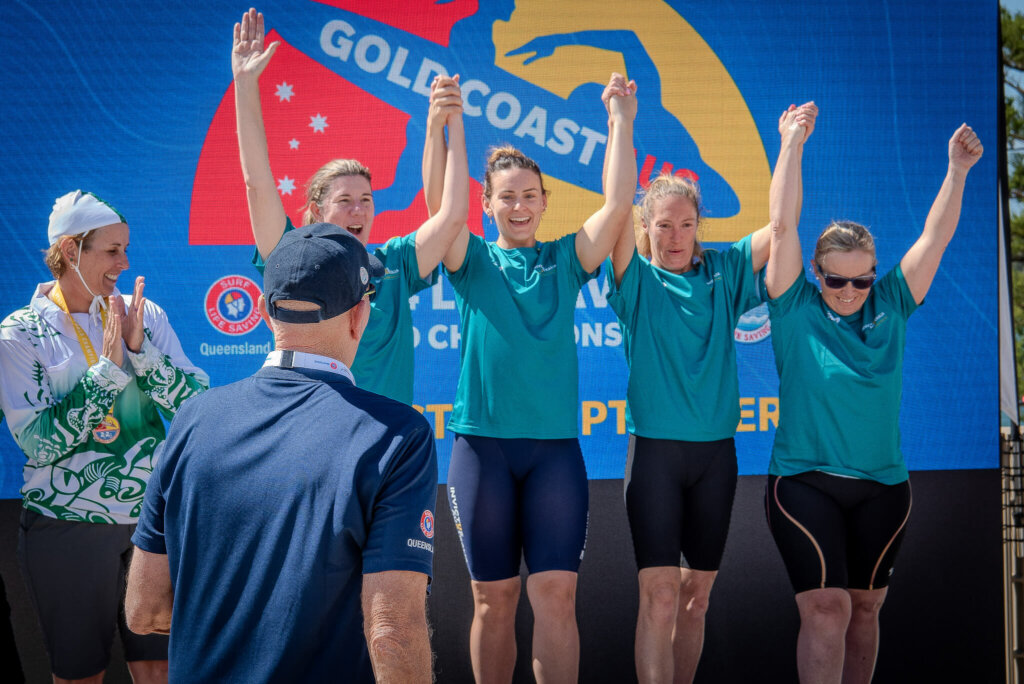
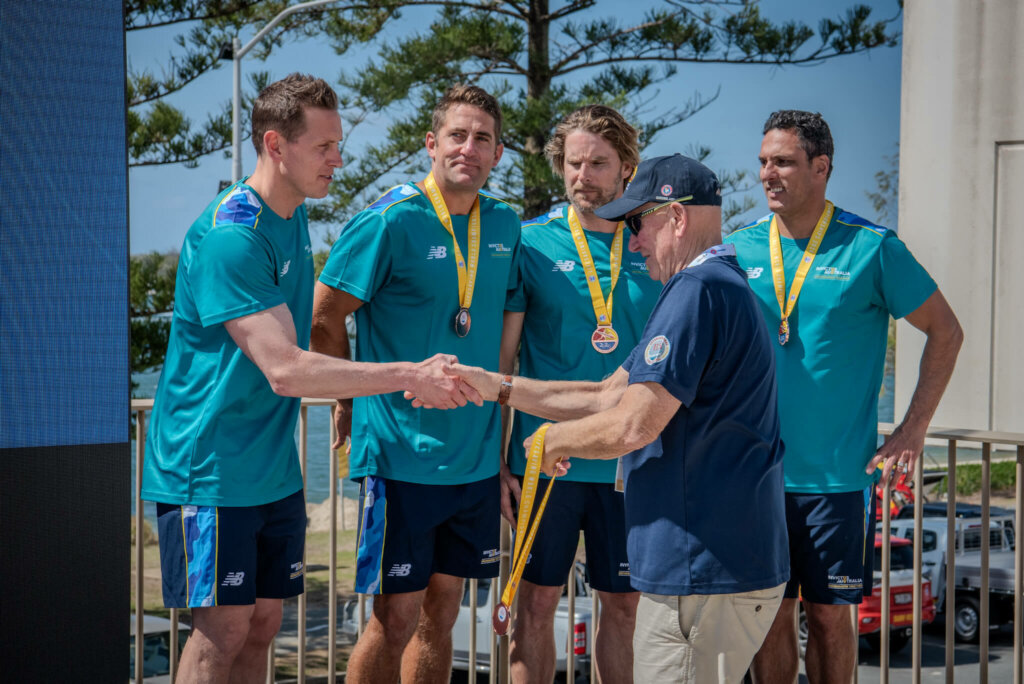
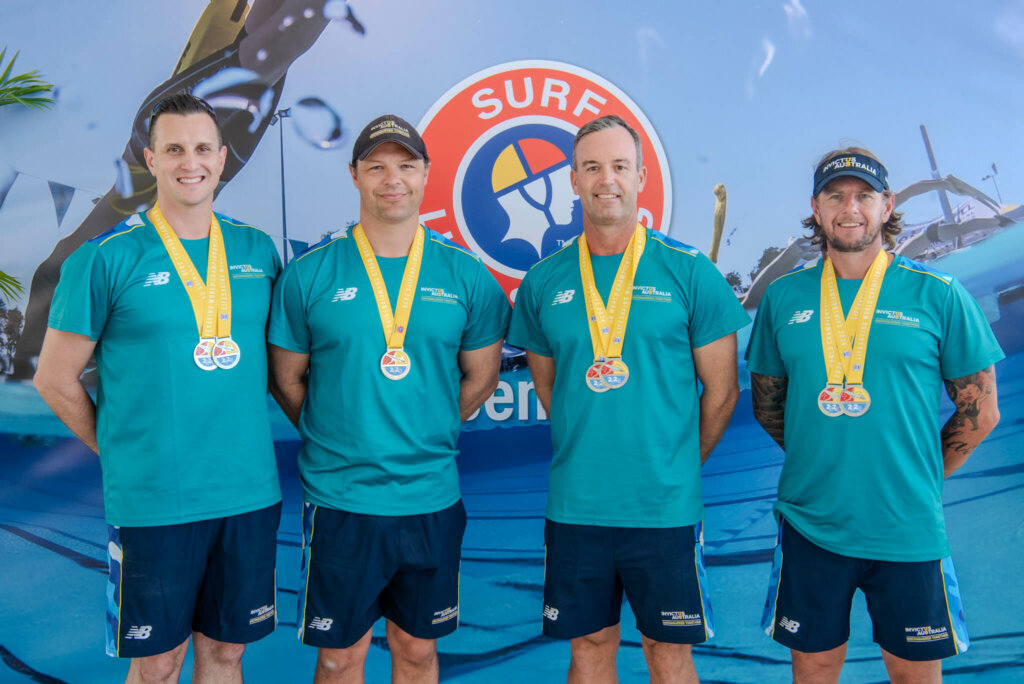
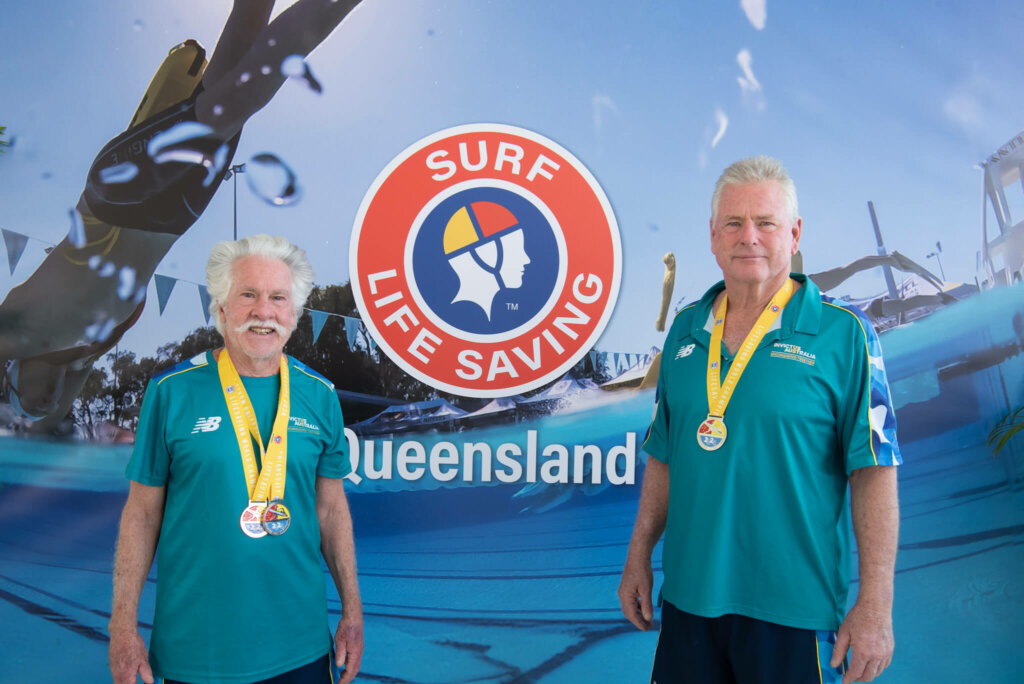
For returning competitor Sean Lawler, the team’s performance was nothing short of impressive and a chance for him to recognise the growth of the team which once began as an idea in his mind. Sean knew the “nurturing and inclusive environment,” of lifesaving was one that would be of great benefit to the veteran community.
“Watching the connection and camaraderie continue from the battlefield to the beaches is what makes this team unique and so special.”
MORE THAN A COMPETITION
Beyond the competitive aspect, the World Lifesaving Championships offered an invaluable opportunity for Invictus Australia members to connect with fellow veterans and foster a sense of camaraderie.
Team Coach, Ryan Gaylard, reflected on the importance of sporting opportunities like this for those who have served.
“You come out of defence and you lose the sense of regiment and routine you are used to, and with that you lose the connection and sense of community. So, the best thing you can do when you leave defence is to find a community to connect with, to find a sense of purpose.”
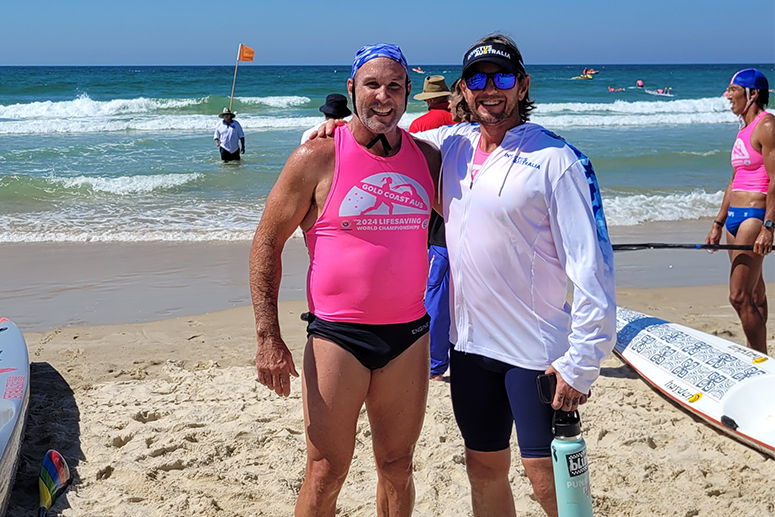
According to Ryan, the lifesaving community was able to provide this connection and purpose for him. “This is what is so great about the lifesaving community, it brings people together. Seeing a range of individuals from different disciplines of service, coming together, sharing their unique skillsets and competing as one has been a display of mateship and camaraderie that a lot of us miss from the Defence Force.”
UNITY THROUGH SERVICE
The shared values and history of the Defence Force and Surf Lifesaving is what draws so many veterans towards the sport. According to Mark Gilbert, Team Chaplain;
“Surf lifesaving clubs are a natural place for returned veterans to find community because of the order and structure of the clubs and the history of returned servicemen being integrally involved in the development of surf lifesaving clubs.“
When moving between the defence and civilian world, the change is tough and you need support and a place where you feel like you belong. I have seen first hand how Surf Lifesaving can be that place for veterans.”
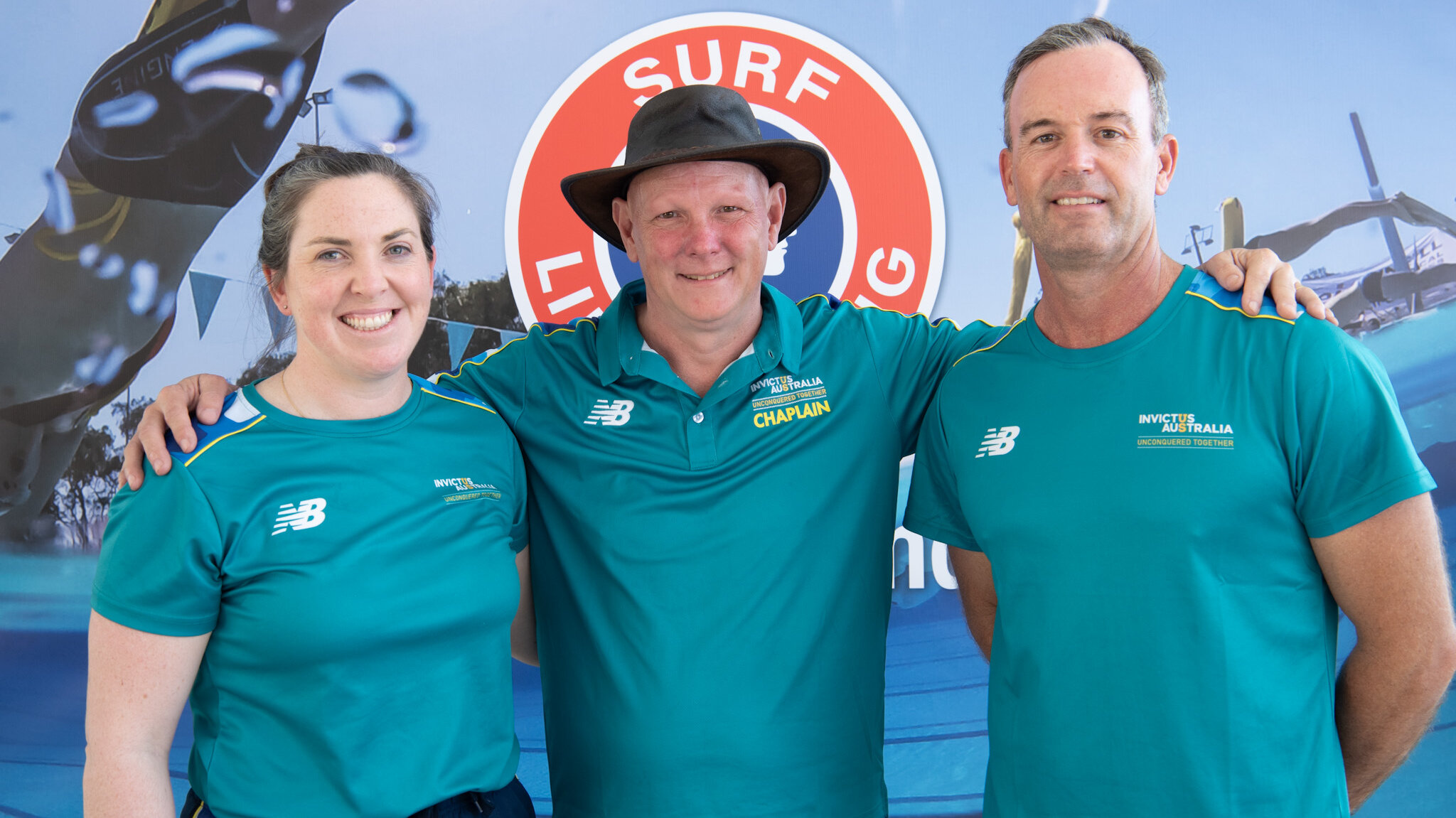
However, according to Mark, the benefit doesn’t only lie with the veterans. “It is also a huge benefit to the surf lifesaving clubs to have veterans. As a group, they are competitive, they’re disciplined and they work well in a team together. Because of that, they are great assets to surf clubs.”
After a couple of days of competing, it became clear that being involved in Team Invictus Australia meant more than performance. Over the course of the event, the team inspired many veterans and family members, creating connections over their shared experiences in the defence community.
When the pool events wrapped up, the team connected with Surf Lifesaving officials, some who had served and others who were family of someone who had served. The officials were proud to see how the sport embraced the first military team.
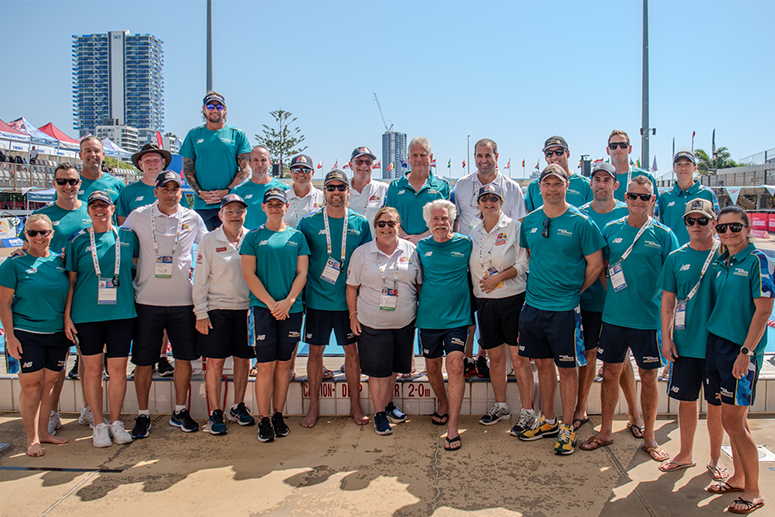
According to Ryan, the team competing in the Lifesaving World Championships helped to “inspire veterans to get involved and have a go, connect with other veterans and feel that sense of connection and camaraderie again.”
THE IMPORTANCE OF FAMILY SUPPORT
Having the Championships on home soil meant that many of the team’s family and friends were on deck to support, cheering the team on and making connections with other defence families. According to Team Manager Simone Read, including family members in the Team is beneficial to the whole family unit.
“This team is about creating connections not just for veterans but for their families too. We’ve got family members supporting their loved ones in the team, it’s important the families feel a part of it all too. They are the people who have supported us through our service, and we can learn so much from them. My son came down to support me, and that gave me great joy.”
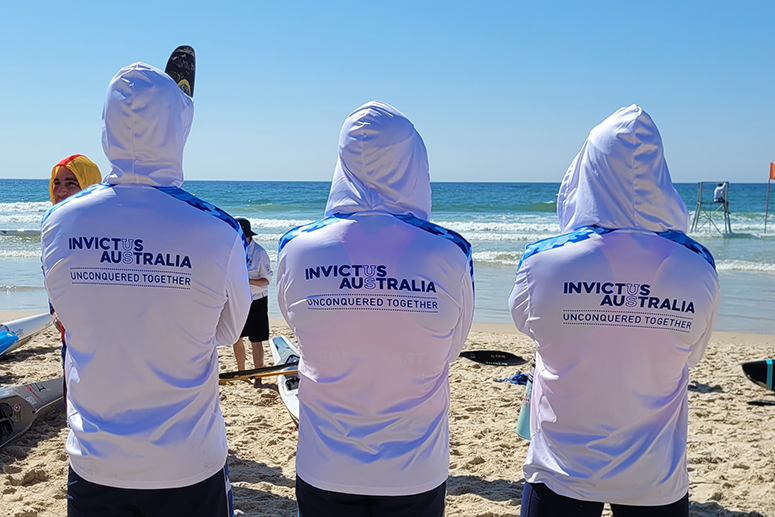
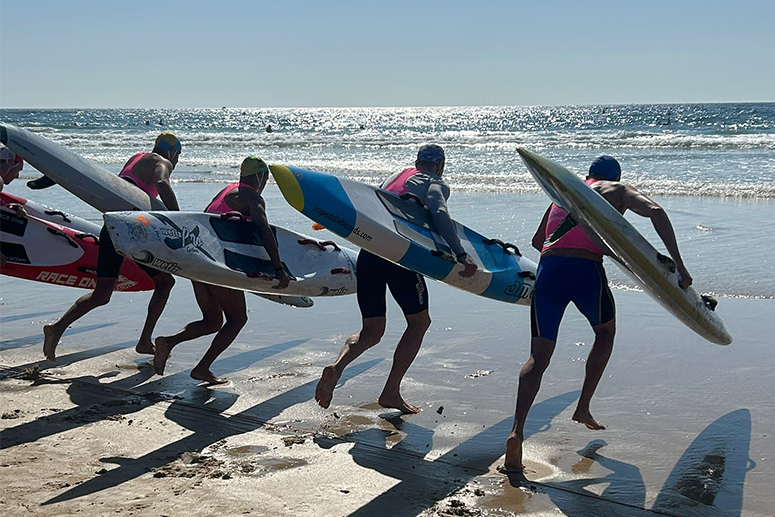
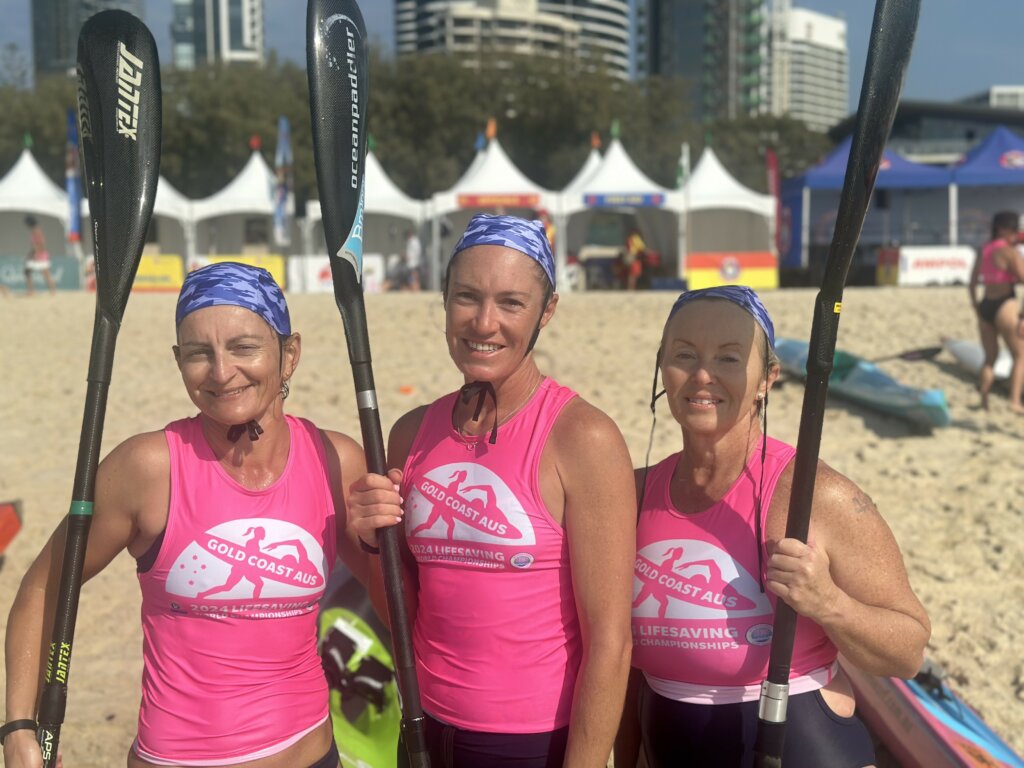
The team’s participation in the World Lifesaving Championships is a testament to the power of sport in supporting veterans’ recovery and rehabilitation. It demonstrates that with the right support and opportunities, individuals can overcome adversity and achieve extraordinary things.
Invictus Australia is incredibly proud of the achievements of its members at the World Lifesaving Championships. Their dedication, perseverance, and exceptional skills have lastingly impacted many lives.
Read more:
- Team Invictus Australia announced for World Lifesaving Championships 2024
- Lifesaving hopefuls attend Selection Camp for Team Invictus Australia on the sunny Gold Coast
- Invictus Australia supports first veterans team to compete at the Surf Life Saving World Champs
- Invictus Games alumna turns to Lifesaving World Champs for new challenge
Our Veteran Engagement team runs events such as these across the country each day. To keep up to date with what is happening in your area, join your local Facebook group.
- ACT Local Facebook group
- SA Local Facebook group
- Sth East QLD Facebook group
- Nth QLD Facebook group
- Nth NSW Local Facebook group
- NSW Sth Coast Local Facebook group
- Victoria Facebook group
- WA Facebook group
- TAS Facebook group
About Invictus Australia: Invictus Australia encourages veterans and their families to connect and engage with their communities through sport. Whether participating or volunteering at grassroots level, to competing internationally at an Invictus or Warrior Games, Invictus Australia leverages the power of sport to proactively foster good health and aid in recovery, rehabilitation and reintegration. Invictus Australia promotes the physical, social and emotional benefits of sport for all, and shine a light on the unique needs of younger veterans, particularly the challenges associated with transitioning from military to civilian life.



